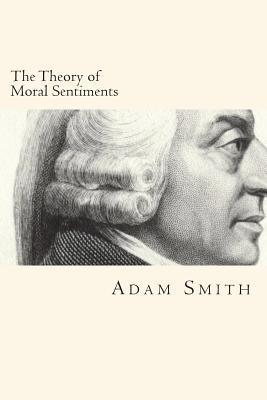The Theory of Moral Sentiments

The Theory of Moral Sentiments
Broadly speaking, Smith followed the views of his mentor, Francis Hutcheson of the University of Glasgow, who divided moral philosophy into four parts: Ethics and Virtue; Private rights and Natural liberty; Familial rights (called Economics); and State and Individual rights (called Politics). Hutcheson had abandoned the psychological view of moral philosophy, claiming that motives were too fickle to be used as a basis for a philosophical system. Instead, he hypothesised a dedicated "sixth sense" to explain morality. This idea, to be taken up by David Hume (see Hume's A Treatise of Human Nature), claimed that man is pleased by utility. Smith rejected his teacher's reliance on this special sense. Starting in about 1741, Smith set on the task of using Hume's experimental method (appealing to human experience) to replace the specific moral sense with a pluralistic approach to morality based on a multitude of psychological motives. The Theory of Moral Sentiments begins with the following assertion: How selfish soever man may be supposed, there are evidently some principles in his nature, which interest him in the fortunes of others, and render their happiness necessary to him, though he derives nothing from it, except the pleasure of seeing it. Of this kind is pity or compassion, the emotion we feel for the misery of others, when we either see it, or are made to conceive it in a very lively manner. That we often derive sorrow from the sorrows of others, is a matter of fact too obvious to require any instances to prove it; for this sentiment, like all the other original passions of human nature, is by no means confined to the virtuous or the humane, though they perhaps may feel it with the most exquisite sensibility. The greatest ruffian, the most hardened violator of the laws of society, is not altogether without it.
PRP: 98.42 Lei
Acesta este Prețul Recomandat de Producător. Prețul de vânzare al produsului este afișat mai jos.
88.58Lei
88.58Lei
98.42 LeiLivrare in 2-4 saptamani
Descrierea produsului
Broadly speaking, Smith followed the views of his mentor, Francis Hutcheson of the University of Glasgow, who divided moral philosophy into four parts: Ethics and Virtue; Private rights and Natural liberty; Familial rights (called Economics); and State and Individual rights (called Politics). Hutcheson had abandoned the psychological view of moral philosophy, claiming that motives were too fickle to be used as a basis for a philosophical system. Instead, he hypothesised a dedicated "sixth sense" to explain morality. This idea, to be taken up by David Hume (see Hume's A Treatise of Human Nature), claimed that man is pleased by utility. Smith rejected his teacher's reliance on this special sense. Starting in about 1741, Smith set on the task of using Hume's experimental method (appealing to human experience) to replace the specific moral sense with a pluralistic approach to morality based on a multitude of psychological motives. The Theory of Moral Sentiments begins with the following assertion: How selfish soever man may be supposed, there are evidently some principles in his nature, which interest him in the fortunes of others, and render their happiness necessary to him, though he derives nothing from it, except the pleasure of seeing it. Of this kind is pity or compassion, the emotion we feel for the misery of others, when we either see it, or are made to conceive it in a very lively manner. That we often derive sorrow from the sorrows of others, is a matter of fact too obvious to require any instances to prove it; for this sentiment, like all the other original passions of human nature, is by no means confined to the virtuous or the humane, though they perhaps may feel it with the most exquisite sensibility. The greatest ruffian, the most hardened violator of the laws of society, is not altogether without it.
Detaliile produsului









